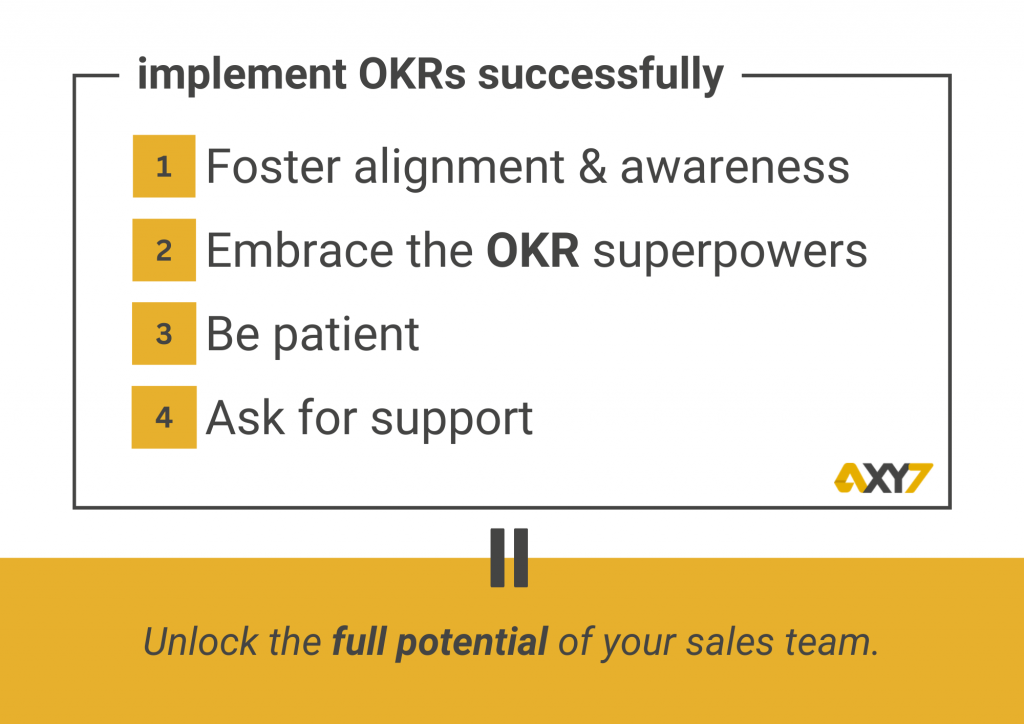Four recommendations to support a successful implementation of OKRs:
Objective and Key Results is a popular methodology used by companies to set and track goals. However, implementing OKRs can be a challenge, especially for small to mid-sized businesses.

The following recommendations will help ensure that your OKR implementation is successful:
- Foster alignment and awareness: OKR implementation should begin with buy-in from the C-level and management, and then be adopted by the rest of the team. Once top-level objectives are set, the real work begins. As the team shifts from planning to execution, they should tie their day-to-day activities to the organization’s vision. Cascading OKRs throughout the organization will make the process more coherent, and allowing team members to set some of their own objectives and key results will increase engagement and motivation.
- Be patient: OKRs are not a quick fix, and it takes time to fully integrate them into the company culture. However, once the team has adopted OKRs, the results will be worth the wait.
- Embrace the OKR Superpowers: OKRs have several benefits, as outlined by John Doerr in his book “Measure What Matters.” These superpowers include focus and commitment to priorities, alignment and connection for teamwork, tracking for accountability, and stretching for amazing results.
- Ask for support: OKRs have been successfully implemented in many organizations worldwide, and it is always a good idea to seek the help of professional OKR consultants or OKR software such as Axy OKR. Additionally, having an OKR champion on your team who is a self-starter and a fast learner will be beneficial in implementing and managing the OKR program.
Unlock the full potential of your sales team with Axy OKR and Salesforce Integration. Get real-time progress tracking and improve collaboration. Click here to schedule a demo.



